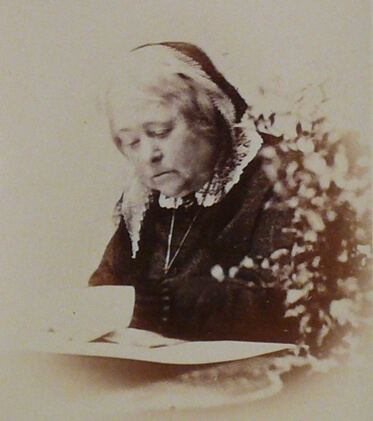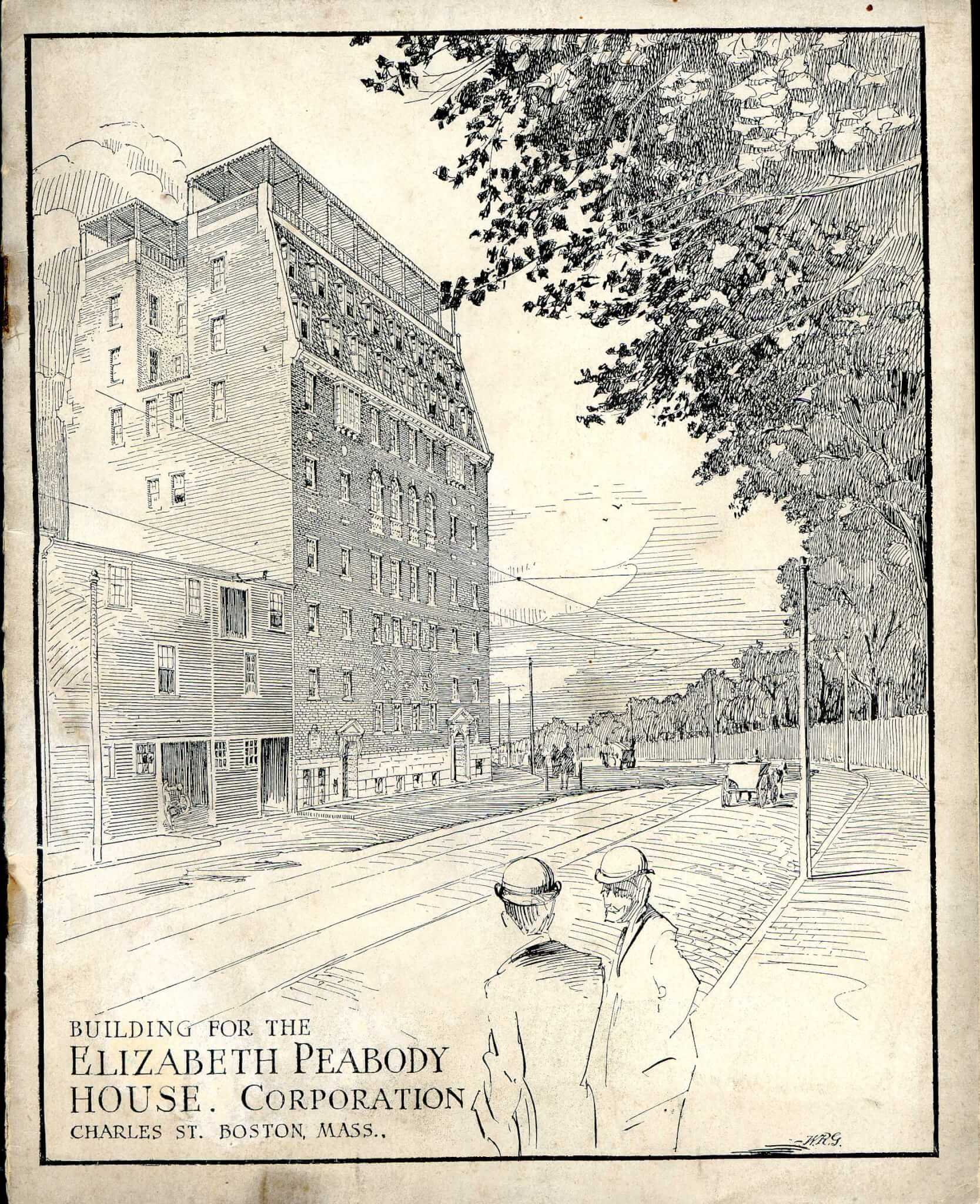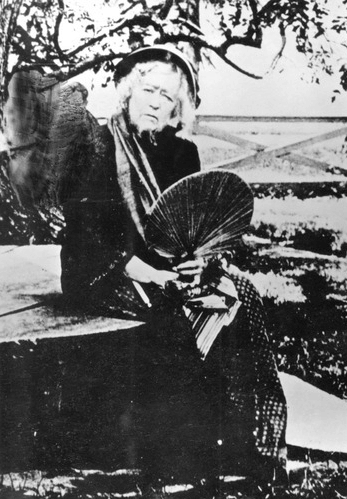Elizabeth Peabody
Elizabeth Peabody was a teacher, publisher, and writer, who introduced kindergarten in the United States on Pickney Street.
Elizabeth Peabody was born to Eliza Palmer and Nathaniel Peabody in 1804, in Billerica. Although never a West End resident, Peabody’s legacy in education and activism was honored in the West End with the founding of the Elizabeth Peabody House in 1896, two years after Peabody’s death. Peabody’s career in teaching, publishing, and writing was inspired by her mother, who ran a school for girls that included Elizabeth as a pupil. By 1821, at seventeen, Elizabeth founded the Lancaster Boarding School (when the family moved to Lancaster, MA), and taught in turn her younger sisters Sophia and Mary. By 1822, Peabody had moved to Boston, opened another school in the city, and took Greek lessons from Ralph Waldo Emerson. After some time in Maine, she co-founded another all-girls school in Brookline with Mary, and became the acquaintance of Reverend William Ellery Channing. Channing was another tutor of Peabody’s, and both of them were drawn to the radical new religious teachings of Unitarianism. With her growing interest in Unitarian teachings, Peabody became a private tutor of Bronson Alcott, who became the Unitarian minister and educator that founded the Temple School in Boston. This was after Peabody closed her Boston school in 1832 and shifted to writing and publishing. While publishing Alcott’s work, Peabody was skeptical about his teaching style, fearing that he steered his young students in certain directions without allowing them genuine expression.
By publishing Alcott’s Conversations with Children on the Gospels in 1836 and 1837 (there were two volumes), Peabody invited controversy that made running a successful school of her own too difficult. But she was a founding member of Boston’s Transcendentalist Club in 1837, and founded a West Street bookstore in 1839. The bookstore hosted the weddings of Sophia Peabody, who married author Nathaniel Hawthorne, and Mary Peabody, who married public education advocate Horace Mann. Peabody not only published some of Nathaniel Hawthorne’s first books, she also wrote her own articles in Transcendentalist outlets such as The Dial. Her work in publishing was also instrumental to the dissemination of Henry David Thoreau’s seminal essay “Civil Disobedience” in 1849. Peabody was passionate about social justice: she argued for the abolition of slavery, for women’s rights, and for public education.
After Peabody learned of German innovations in early childhood education, especially the German-speaking kindergarten in Wisconsin in 1856, she created an English-speaking kindergarten — the first in Boston and the United States — in 1860 on Pinckney Street. Peabody’s teaching philosophy, and her prolific writing that supported it, was based on the theories of Friedrich Froebel, who believed that young children should be given the conditions to develop through music, art, and physical play.
Peabody died at 89 in January 1894, but the Elizabeth Peabody House continued her important work in educating children. The organization was primarily a settlement house for immigrant families in the West End, but by 1910 it had a new seven-story building facing the Charles River, with a library, gym, kindergarten, and community theater. The Peabody House’s early activities were also separated between men and boys and women and girls. After urban renewal razed the West End in the 1950s, the Peabody House moved to Somerville, where many West End families moved after losing their homes.
Article by Adam Tomasi
Source: West End Museum, Encyclopedia Brittanica, Boston Athenaeum, Simmons University; Boston Women’s Heritage Trail










